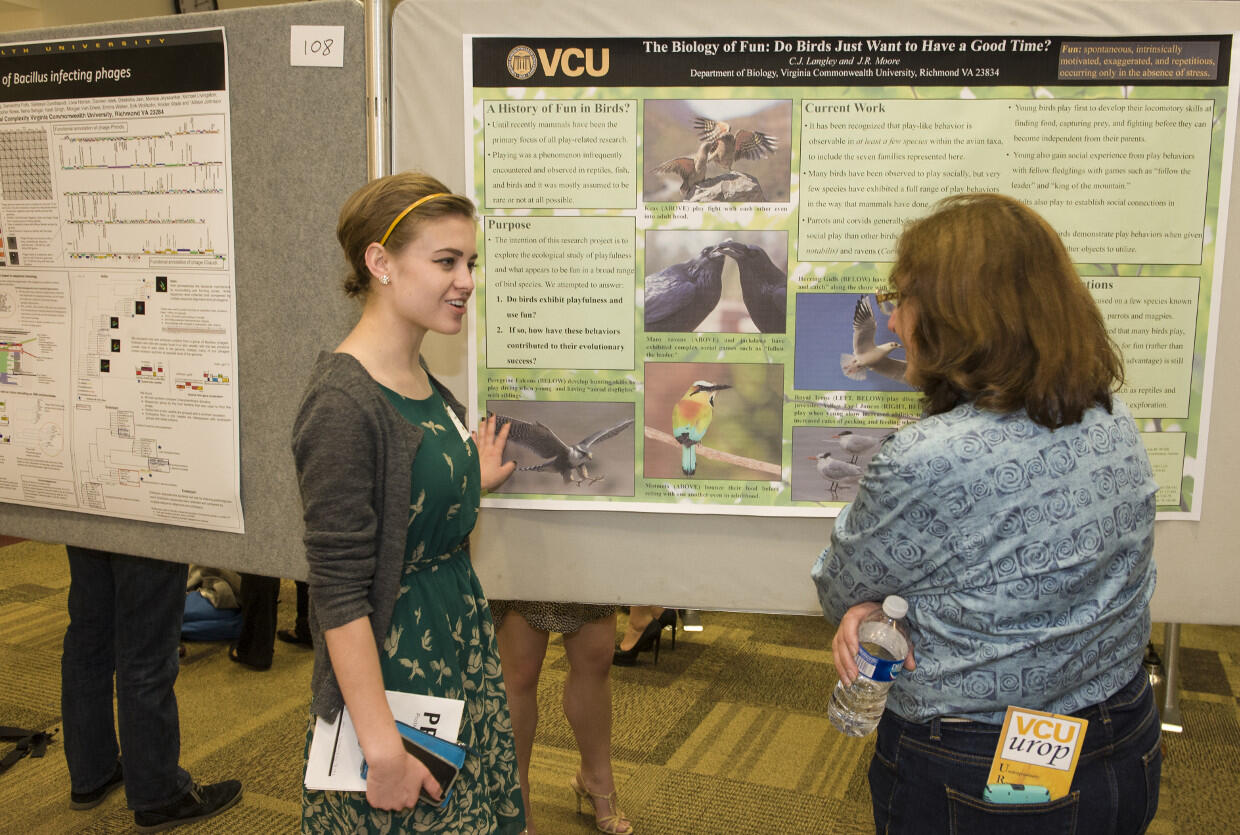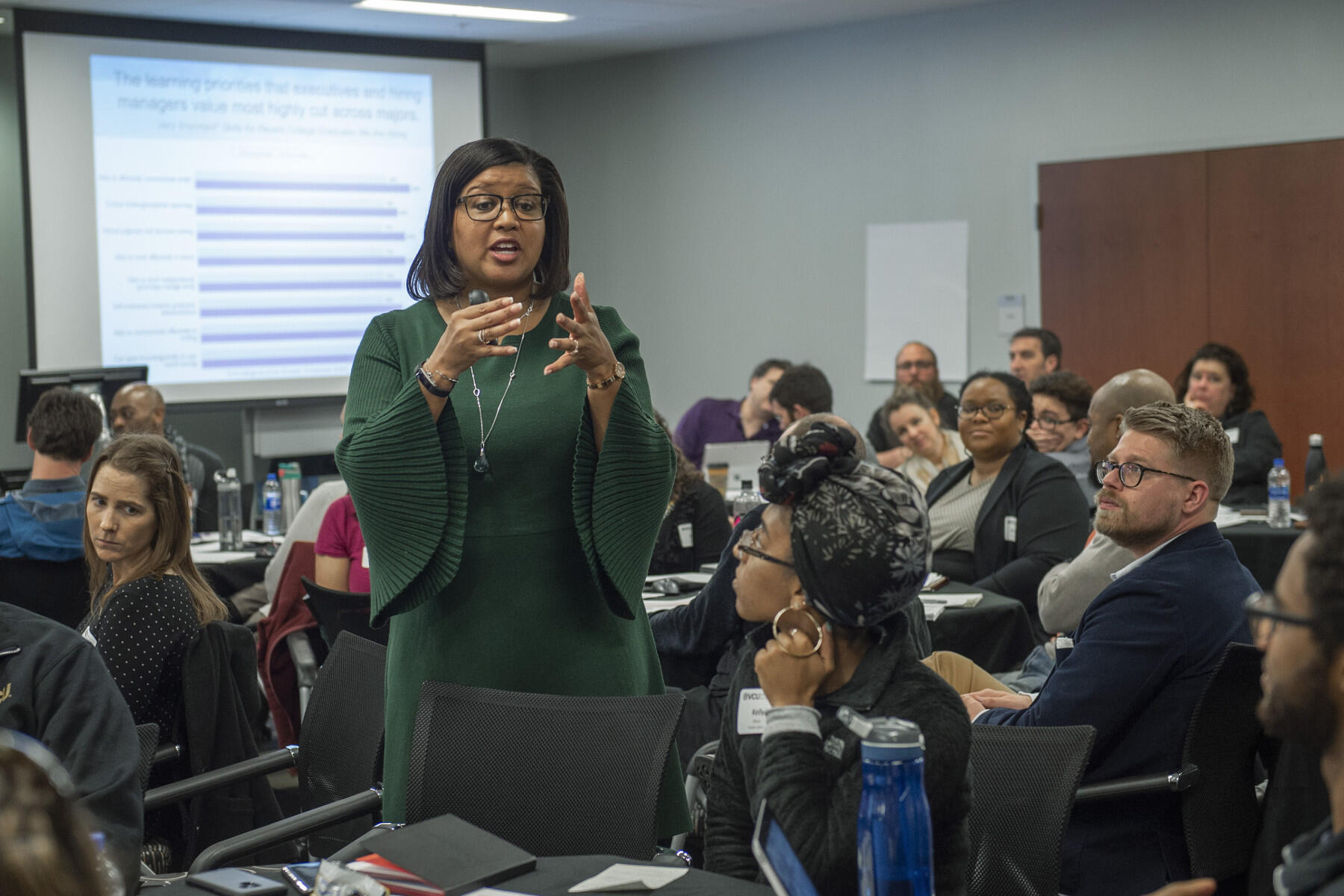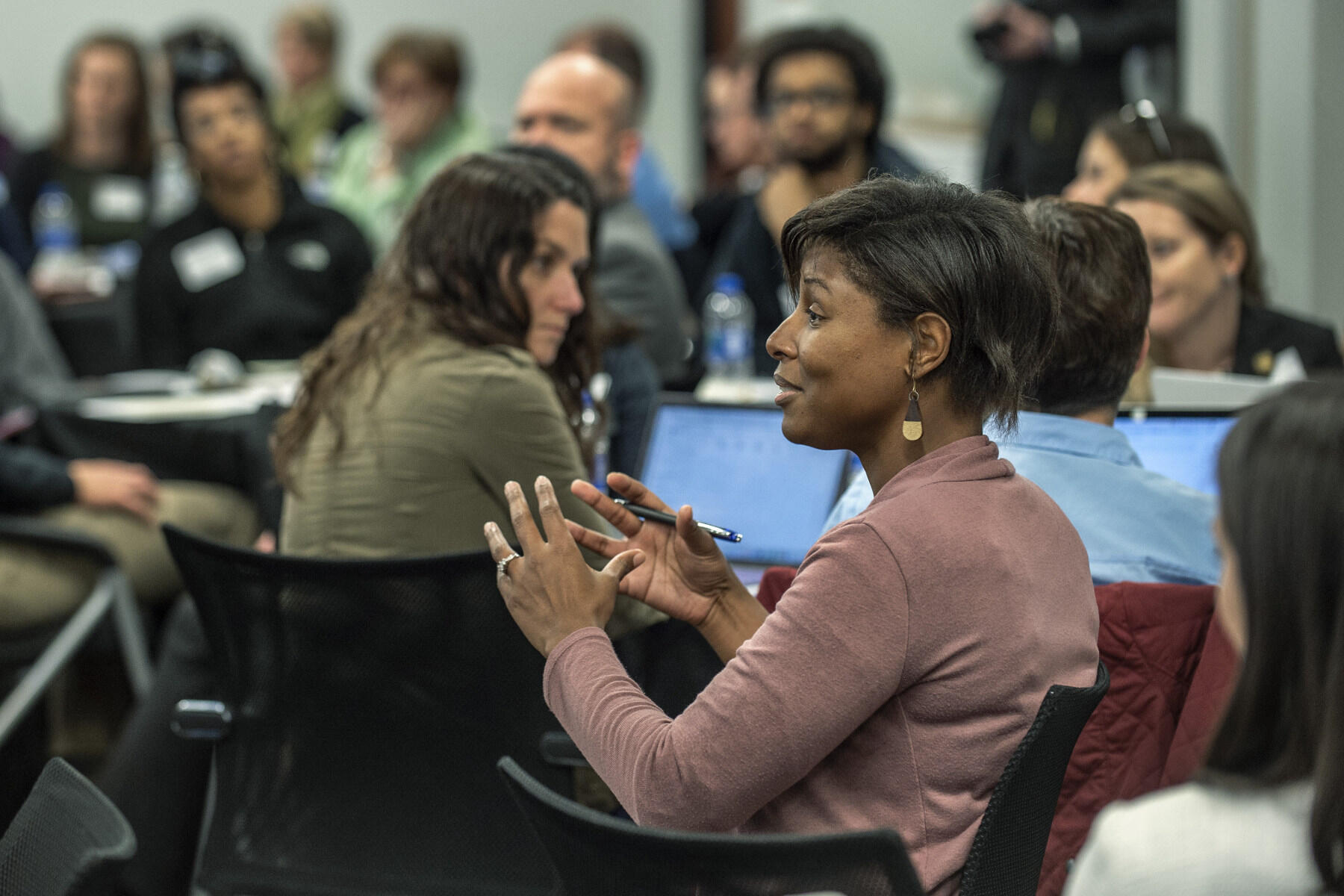
Feb. 20, 2019
Universitywide initiative to boost experience-based education gains momentum
Town hall on Friday will be a chance for program overview and community feedback
Share this story
Drashty Mody has made the most of her education at Virginia Commonwealth University. In addition to her academic studies, the senior biology major has worked in a microbial ecology research lab as part of VCU’s Undergraduate Research Opportunities Program, studying bacterial and fungal nitrogen cycling, and traveled to Peru and Ecuador to work in mobile health clinics as part of the organization MEDLIFE at VCU. Mody also was a member of LEAD, a four-semester living-learning program for undergraduate students who are dedicated to developing their leadership skills.
Mody said she chose to attend VCU in part because of its urban setting and inherent potential for an out-of-the-classroom education.
REAL town hallWhen: Feb. 22, 9-10:30 a.m. Where: Grace and Broad Residence Center 2, 1010 W. Grace St., Rooms 1231-1232 Attendees are encouraged to RSVP online. Spots will be filled on a first-come, first-served basis. |
“Whatever you’re learning in the classroom, here you have an opportunity to apply that in the community,” Mody said.
Still, Mody said she was slow to wade into the experiential education opportunities that VCU offers and she would like to help incoming students learn sooner than she did about ways they can get involved in research, service learning and internships. For that reason, Mody participated in a summit in December that is part of the ongoing development of VCU REAL (Relevant Experiential and Applied Learning), an initiative to help make experiential learning an integral part of the education of every VCU student.
“There’s definitely more that VCU can do for students to make them aware of these opportunities and to make them more accessible,” Mody said.
The VCU community will have an opportunity to learn more about REAL, and share insights on the initiative, at a town hall on Feb. 22 from 9 to 10:30 a.m. in Rooms 1231-1232 of the Grace and Broad Residence Center 2, 1010 W. Grace St. In addition to providing an update on REAL's status, the town hall will include a Q&A session, providing opportunities for dialogue between the audience and members of the REAL task force. The event is free, but attendees should RSVP via an online form and spots will be filled on a first-come, first-served basis.
“This town hall is open to everyone — faculty, staff and students — to come ask us their questions about REAL, hear about the work we've done to date and give input that will shape REAL's future,” said Erin Webster Garrett, Ph.D., assistant vice provost for REAL. “We're hoping to answer questions that may be floating around and to learn about opportunities for collaboration that will make REAL even more meaningful for our students and faculty.”

Webster Garrett said REAL is “a wonderful way to leverage and build upon momentum that is already in play.” Programs throughout the university already integrate experiential education into their student experience, but REAL will provide a common thread and an anchor for all experiential education activities at VCU. The goal is to have students enrolled in courses that are being tracked with a REAL designation by fall 2019.
“Our key goals are to support every student’s experience but also to support faculty and staff and their programs and help them to connect to our identity and mission as an institution,” Webster Garrett said.
Webster Garrett said engaging with the community is part of the fabric of VCU, easily traced to its formation in 1968 and the founding commission’s charge that the university would “confront on an intellectual and practical level the social environment which surrounds it.” REAL represents a deepening of that commitment and an avenue to building a cohesive approach to experiential education, she said. The implementation of REAL means engaging more students in the transformative, hands-on learning experiences that can help them “connect the dots between their lives as students and their lives as members of civic, personal and professional communities,” Webster Garrett said.
“REAL also provides the mechanism for the institution itself to be engaged in integrative thinking,” Webster Garrett said. “How are we connecting the dots as an institution between our commitment to diversity and inclusion, to research, and to providing a 21st-century curriculum? The REAL program provides a way to come together and talk about our goals and develop some innovative, far-reaching ideas.”
Webster Garrett said researching the student experience unit by unit to understand existing experiential education is a key part of the REAL process. Webster Garrett and members of the REAL task force have been holding listening sessions with students and academic units, and the December summit, which was attended by more than 90 students, faculty and staff, was an interactive workshop to begin a conversation about how REAL can align with and inform unit-level program goals.
Webster Garrett said REAL would be focused on tailoring experiences to meet the mission of the various, distinctive academic units rather than trying to create a one-size-fits-all approach.
“One of the things that’s really challenging about high-impact practices is if you come in and say every student must have ‘X’ experience then you’re going to see that not every student is going to respond in the same way to that experience,” Webster Garrett said. “A better approach would be asking, ‘What kind of experiential learning does this student need to be most successful and does that look the same as what another student may need?’”
Webster Garrett said REAL could have a crucial impact on students’ college journey. The initiative aims to bring scale, consistency and depth to the student experience.
“One goal is for more pathways for students to graduate with distinction,” Webster Garrett said. “Another is to foster a more holistic approach to helping them as individuals, to helping them connect the dots between the different parts of their experiences and their thinking about the future in a way that matches with their goals, their talents and their aspirations.”
Mody said a college education without engaging with the wider world falls short of its potential.
“While you’re in college, I think somebody has to push you a little bit on the edge,” Mody said. “You need someone to make sure you know there is another world outside of your classroom, even that there are other people in other majors with you in school. Getting out there and crossing paths with that is a big part of what college should be all about.”

Subscribe to VCU News
Subscribe to VCU News at newsletter.vcu.edu and receive a selection of stories, videos, photos, news clips and event listings in your inbox.











